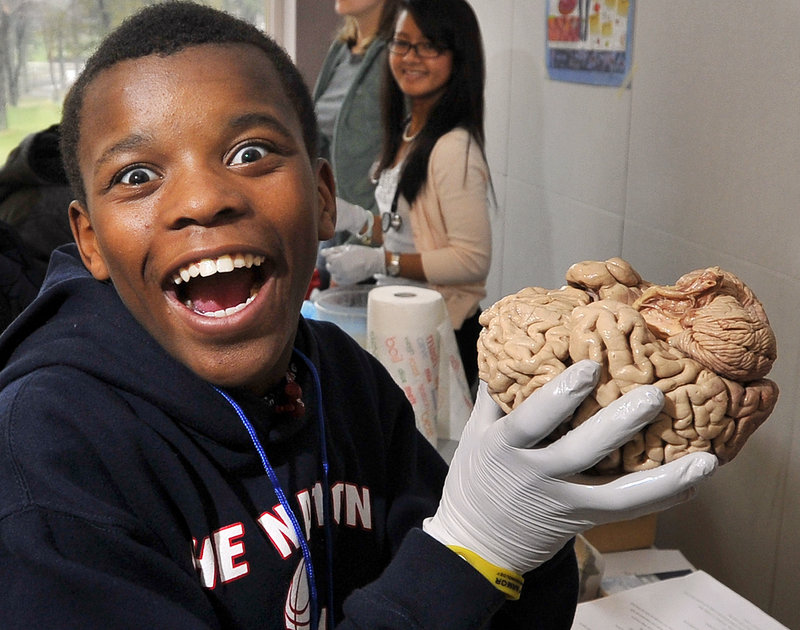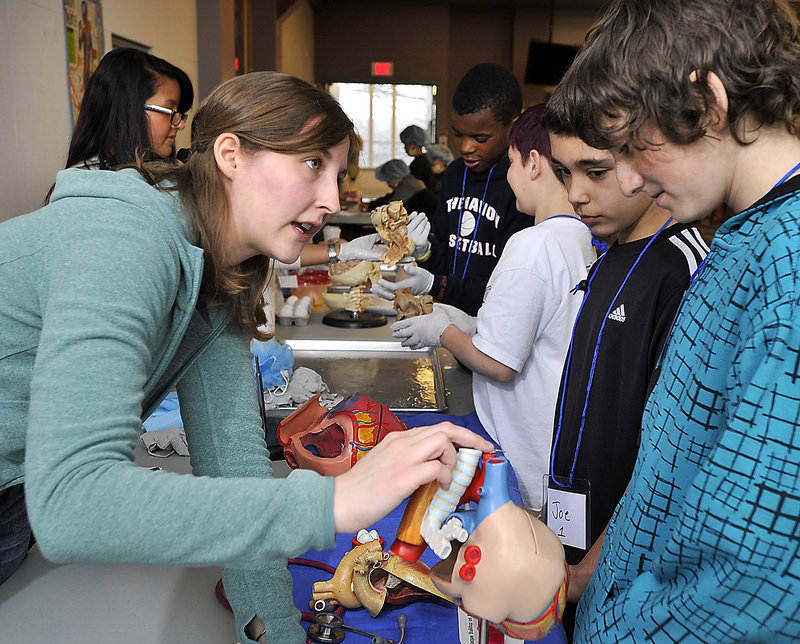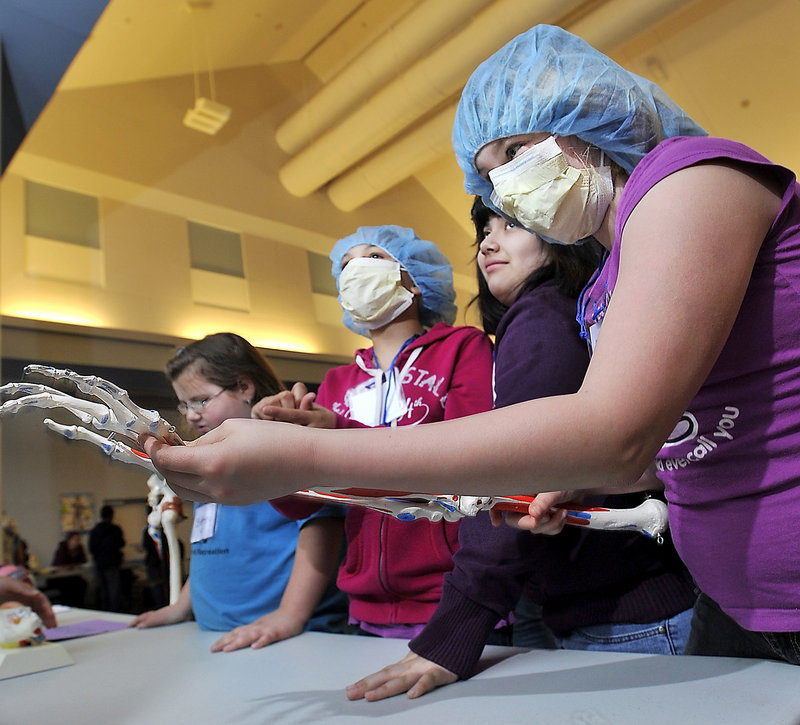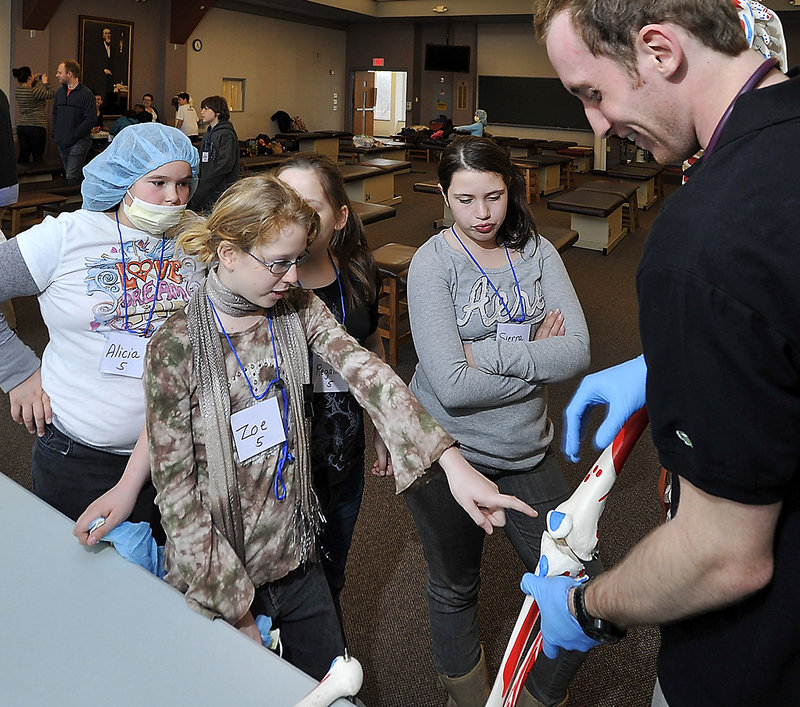BIDDEFORD – Sure, elementary school students can learn about the human brain in textbooks. But seeing a real one up close is a completely different learning experience.
Then there’s building up the courage to reach out and touch it.
“It’s cool, but kind of nasty at the same time because it’s gushy,” said Alicia Roy, a fifth-grader who was one of 20 Biddeford Intermediate School students at the annual Medical School Day for Kids at the University of New England’s College of Osteopathic Medicine.
Other students reveled in the “kind of nasty” displays, tinkering with skeletons and picking up the brain and holding it in their hands.
“Most kids say, ‘Eww, that’s gross’ or ‘That’s somebody’s real brain? That’s cool,’ ” said Amanda Rago, a second-year medical student.
Rago is one of more than two dozen UNE students who mentor fourth- and fifth-grade students, meeting with them once a week during the school year, said Denise D’Entremont, the guidance counselor at Biddeford Intermediate School.
D’Entremont said she set up the program 17 years ago, after a girl at the school told her she didn’t realize that girls could go to college. The program started out as girls-only, but has expanded to include boys, she said.
The voluntary mentoring program is one of several at UNE, said spokeswoman Kathleen Taggersell. D’Entremont said many of the UNE medical students stay in touch with their students after the program.
Michaella Jamiel, a second-year medical student who wants to be a pediatrician, said working with the middle-schoolers is good for her, because it helps her learn how to explain medicine in simple terms.
“We have a blast and hopefully they have a blast,” Jamiel said. “And if we interest one or two kids into science, that’s great.”
The day on campus also gives the younger students a taste of college life.
“What I usually hear when we get on the bus is, ‘Oh, I want to go to college,’” D’Entremont said. “And that’s my goal.”
John Lowery, a graduate of the university’s College of Osteopathic Medicine who plans to start a residency at Central Maine Medical Center in July, said he got interested in medicine when he was in elementary school.
Serving as a mentor in other programs, Lowery said students become interested in science and the medical field when they can see and even touch human anatomy.
“You can almost see a light go off,” he said, as they start to ask, “Well how does that work?”
That same spark of excitement is exactly what happened when Alicia Roy and three other students watched an egg shatter in a plastic container as they shook it to demonstrate what would happen to the human brain if someone crashed on a bicycle while not wearing a helmet.
Staff Writer Emma Bouthillette can be contacted at 791-6325 or at:
ebouthillette@pressherald.com
Send questions/comments to the editors.






Success. Please wait for the page to reload. If the page does not reload within 5 seconds, please refresh the page.
Enter your email and password to access comments.
Hi, to comment on stories you must . This profile is in addition to your subscription and website login.
Already have a commenting profile? .
Invalid username/password.
Please check your email to confirm and complete your registration.
Only subscribers are eligible to post comments. Please subscribe or login first for digital access. Here’s why.
Use the form below to reset your password. When you've submitted your account email, we will send an email with a reset code.